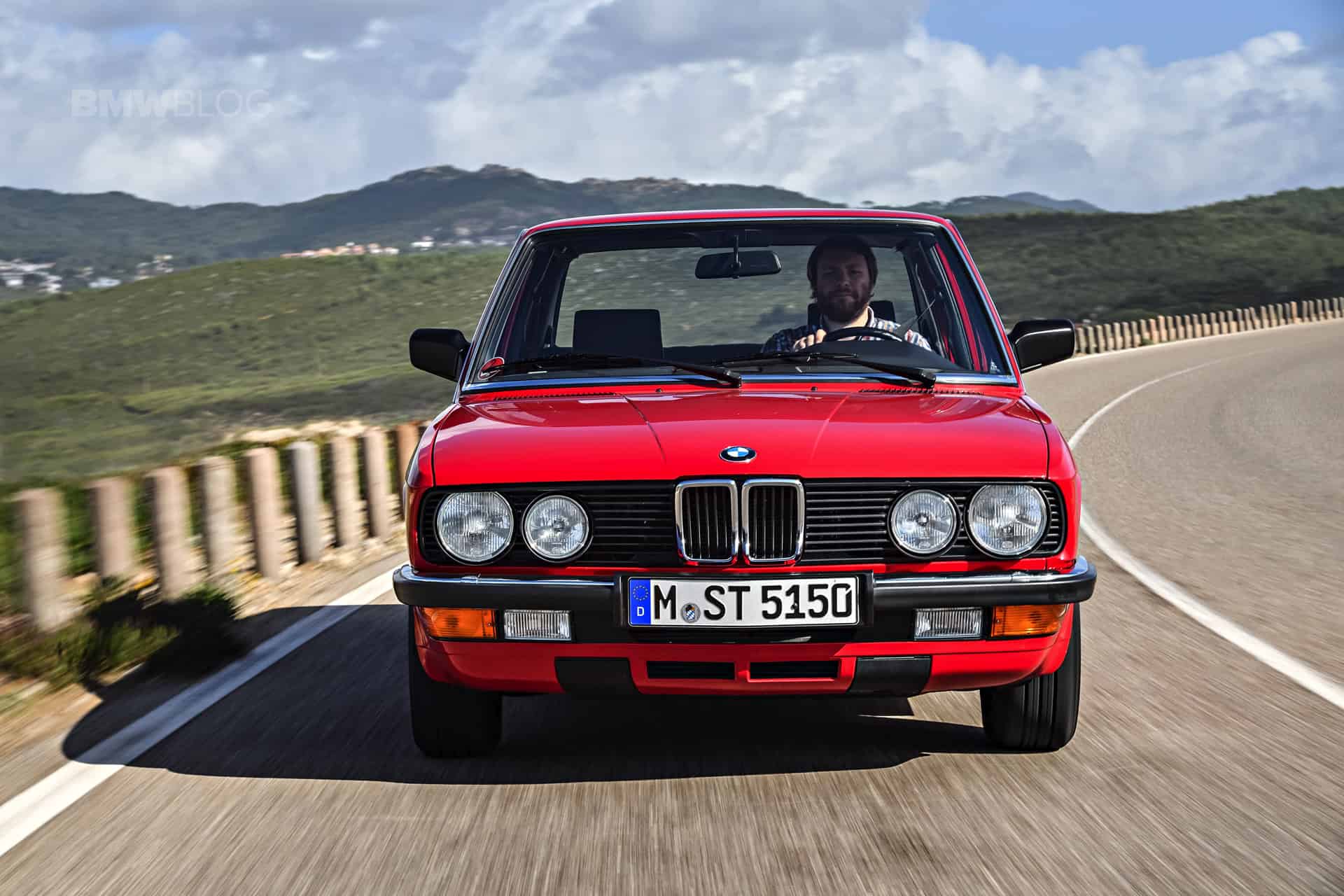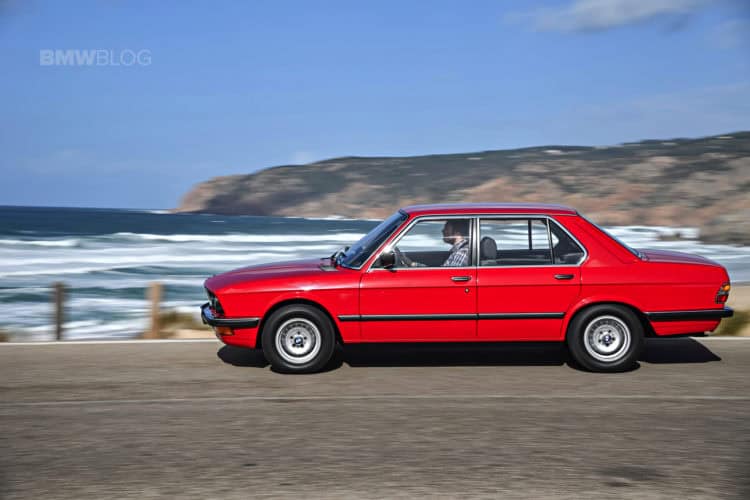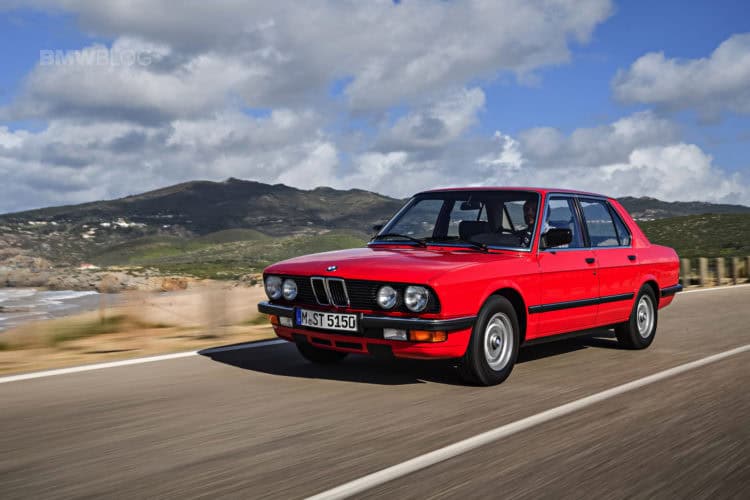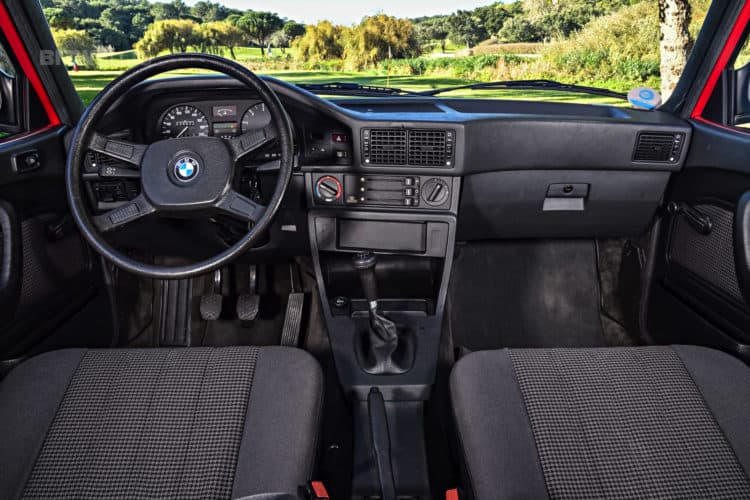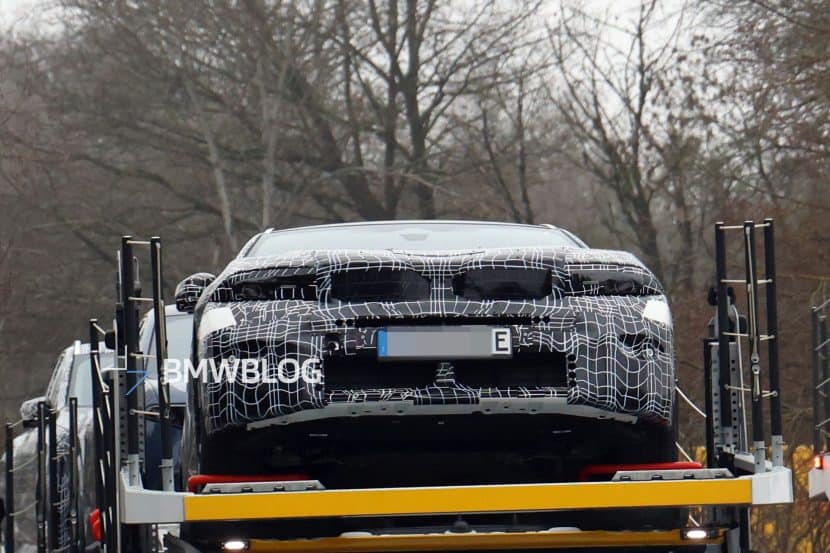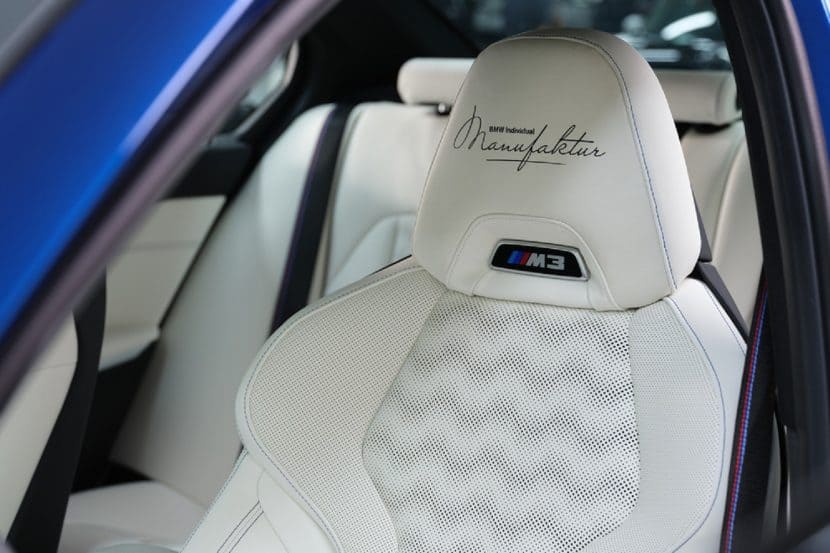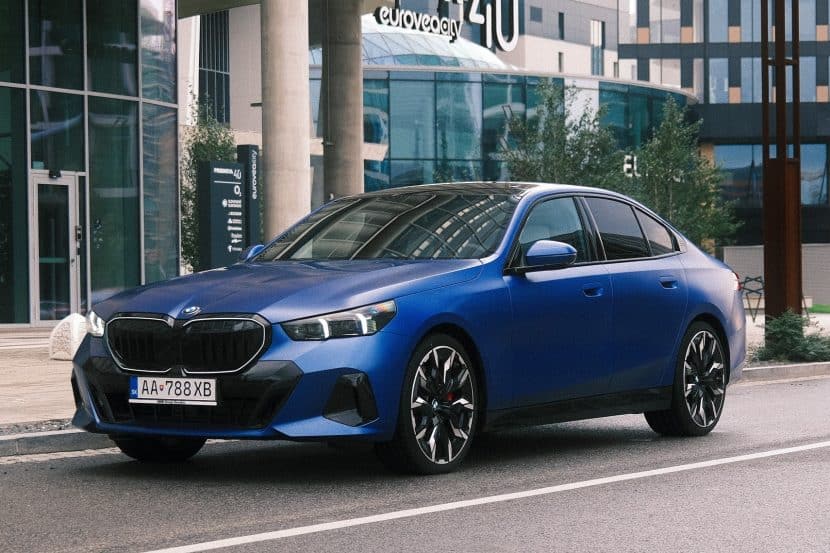The Cars: VW Golf GTI and BMW 520i
Looking through some old photos the other day, I chanced upon one taken in December 1982, just before Christmas, in fact. In the picture, we see not one but two fine examples of German cars: a nearly new VW Golf GTI and a BMW 520i, the E28 model. These were my parents’ cars. Both were quite expensive but not overly so. Yes, the GTI was the most expensive Golf, but the 520i was priced halfway between a Golf 316 and a house-priced 635CSi. Everett Senior worked for BMW back then and brought at least one of those home. Those were the days when BMWs were a rare sight outside of Germany, and a 6 Series was considered exotica.
BMW’s Golden Era in the UK
This E28 520i was a September 1982-built example, finished in Burgundy red metallic, which left the Dingolfing plant north of Munich shortly after the small six went from Bosch K Jetronic to the new LE Jetronic all-electronic system. This coincided with the launch of the all-new E30 3 Series, which we’ll discuss in a few days.
BMWBLOG is a U.S. site, and I’m English, so I hold the upper hand – we had all the good stuff. Not for us the 55 mph speed limits, ridiculous EPA smog nonsense, diving board bumpers, thermal reactors, and a seriously stunted model lineup. The first E28 launched in the US was the 528e in 1982, but the UK already had a full 1981 lineup, as seen in Germany – the 90 bhp 518 (a good taxi), the 520i with 122 bhp from an injected straight six, the 150 bhp 525i, and a 184 bhp 528i. Of those, the 520i and 528i were the bestsellers – the other two were worthy but in no-man’s land. Germany had a 105 bhp 518i that we didn’t see until ’85 – lively and good on fuel, it sold well here. Not Ford or GM well, but good enough for tiny BMW that only had two factories.
E28 520i – A Smooth and Refined Driving Experience
So, the 520i. With 122 bhp, it wasn’t a fast car, although some might consider 118 mph fast enough, a zero-to-sixty time of 9.6 seconds quite brisk, and a 17-second standing quarter adequate. With 175/14 tires, it wasn’t a racer. With wind-up windows, cloth seats, manual locking, and a manual gearbox, it wasn’t a Cadillac, but it had excellent power steering.
But here’s the thing. The engine was a straight six that was once described as being ‘smoother than a cashmere codpiece’. It started on the button, idled almost silently at 750 rpm, and sounded glorious. The manual ‘box was a five-speed Getrag, with knife-through-butter changes, perfect ratios, and that slight whine in each gear just to remind you that you were operating a piece of quality machinery. The ride was superb, and the handling good and safe – yes, it would drift on a wet roundabout if you wanted it to, but generally speaking, it was just a nice car to drive. Not exciting – you bought a 528i for that, standard if you wanted to make rapid progress, but optioned with Bilstein sports suspension and the limited-slip diff if you were really serious.
RCF466Y is the first BMW I ever rode in, and I remember it well. It was December ’82, and I had broken up from school. Up the school drive came this BMW. I didn’t know much about BMWs then, but almost 41 years later, I can recall that crisply cold but sunny December late afternoon. I’d never seen a paint job so shiny. I’d never heard doors that shut so well. The quality of the interior, the quietness of the engine, the refinement of the whole thing – I was sold.
Competition from Mercedes and Other Manufacturers
Even at 15, I could see where the money went on this car. The competition came from various directions, and the Mercedes W123 was the main one. Expensive but superbly built, it was known as a two-decade car because, well looked after, it would run for twenty years, often more. Ford and GM stuff was, by then, all built in Germany anyway, and they weren’t bad cars at all. Audis were seen as expensive VWs, Japanese stuff was festooned with options, invariably reliable but drove like greased pigs. The dealerships had all the allure of an armpit, and this is where BMW and Mercedes scored.
From late 1980 when BMW (GB) was formed, dealerships were run almost like a McDonald’s with standardized decor and layout, and the man in charge ran it all like a czar. Discounts were forbidden – there was a willing buyer for every car built at full retail. If the sixties were the real genesis decade of BMW and the seventies a lesser step up the ladder, the eighties was truly their golden era because they offered something unequalled elsewhere. That sweet spot where quality overrides mere value for money at a price point that is just attainable, maybe.
In time, of course, things changed. The lesser manufacturers upped their game, and today, cars are all built to much the same standards of quality. Even Mercedes is churned out now – on a recent dealership visit with an ailing SLK (not mine, thankfully), I noticed how poor the paint finish was on showroom cars. Folks just don’t want to pay for painstaking quality anymore, it seems.


